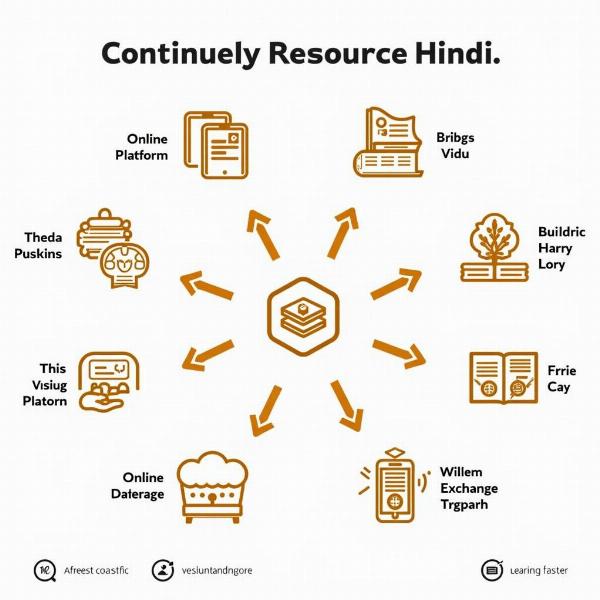Unsociable meaning in Hindi can be complex and encompass various cultural nuances. Understanding the different ways to express unsociability in Hindi, and the cultural context surrounding it, is essential for effective communication. This article explores the various Hindi words for “unsociable,” their subtle differences, and their usage in everyday conversations, literature, and other contexts. We’ll delve into the cultural perceptions of unsociability in India, examining how it’s viewed in different social settings.
Decoding “Unsociable” in Hindi: A Deep Dive
There isn’t one single perfect translation for “unsociable” in Hindi. The most appropriate word depends on the specific nuance you want to convey. Some common options include:
- असमाजिक (Asamajik): This is perhaps the closest direct translation and refers to someone who is against society or its norms. It carries a more negative connotation than simply being unsociable.
- मिलनसार नहीं (Milanasar nahi): This translates to “not sociable” and is a more general term for someone who doesn’t enjoy socializing.
- एकांतप्रिय (Ekaantpriya): This describes someone who prefers solitude. While not necessarily negative, it implies a preference for being alone over being with others.
- अंतर्मुखी (Antarmukhi): This term refers to an introvert, someone who is more focused on their inner world and gains energy from solitude.
Each of these words has its own connotations and usage. Choosing the right one requires understanding the context and the specific shade of meaning you intend to express.
Cultural Context: Unsociability in Indian Society
Indian culture generally values social connections and community. Therefore, being perceived as unsociable can sometimes be seen negatively. However, there’s also a growing acceptance of introversion and the need for personal space. The concept of ekaant (solitude) is deeply rooted in spiritual practices, and spending time alone for reflection and self-improvement is often viewed positively.
Choosing the Right Word: Examples and Usage
Let’s examine some examples to illustrate the subtle differences between these words:
- “He is an asamajik element.” This implies that the person is actively disruptive to society.
- “She’s milanasar nahi and prefers quiet evenings at home.” This simply states that she doesn’t enjoy socializing.
- “He’s ekaantpriya and finds peace in spending time alone in nature.” This highlights a preference for solitude.
- “She’s an antarmukhi and needs time to recharge after social interactions.” This explains her behavior in terms of her personality type.
How to Say “Unsociable” in Different Scenarios
Imagine you need to describe someone as unsociable in different situations. Here are some examples:
- Formal: “He exhibits asamajik tendencies.”
- Informal: “वह ज़्यादा मिलनसार नहीं है (Wah zyada milansar nahi hai)” – “He’s not very sociable.”
- Describing a friend: “She’s a bit of an introvert (antarmukhi).”
- Explaining someone’s absence: “He couldn’t make it; he’s ekaantpriya and prefers quiet evenings.”
Unsociable Meaning in Hindi: FAQs
- What is the most common Hindi word for “unsociable”? While asamajik is a direct translation, milanasar nahi is often used in everyday conversation.
- Is being unsociable viewed negatively in India? While traditionally social connections are highly valued, there’s increasing acceptance of introversion.
- How can I politely describe someone as unsociable in Hindi? Using terms like ekaantpriya or antarmukhi can be more polite than asamajik.
- Are there any positive connotations associated with unsociability in Hindi? Yes, the concept of ekaant (solitude) is often associated with spiritual growth and self-reflection.
- What is the difference between ekaantpriya and antarmukhi? While both refer to a preference for solitude, antarmukhi specifically refers to an introverted personality type.
- Is asamajik always a negative term? Yes, it generally carries a negative connotation implying anti-social behavior.
- How can I learn more about Hindi vocabulary and cultural nuances? Resources like dictionaries, language learning apps, and cultural guides can be helpful.
 Hindi Language Learning
Hindi Language Learning
Conclusion: Embracing the Nuances of “Unsociable” in Hindi
Understanding the various Hindi words for “unsociable” and their cultural context is crucial for effective communication. Whether you’re learning Hindi or simply want to broaden your understanding of Indian culture, this exploration of “unsociable meaning in Hindi” provides valuable insights into the nuances of the language and the social perceptions surrounding this concept. By recognizing the different shades of meaning and using the appropriate terminology, you can navigate social situations with greater sensitivity and understanding.
Meaning-Hindi.in is your trusted partner for professional Hindi translation services. We offer a wide range of specialized translation solutions, including business and commercial document translation, certified and legal document translation, technical and user manual translation, website and localization services, educational and academic document translation, express translation, and specialized domain translation. Whether you need to translate documents for legal proceedings, technical manuals, or marketing materials, our expert team ensures accurate and culturally sensitive translations. Contact us today to learn more about our services and how we can help you bridge the language gap. Email: [email protected], Phone: +91 11-4502-7584. Meaning-Hindi.in is committed to delivering high-quality translations that meet your specific needs.